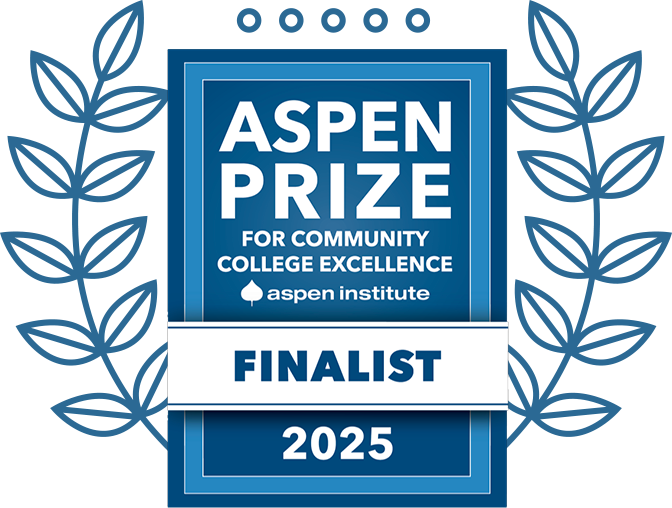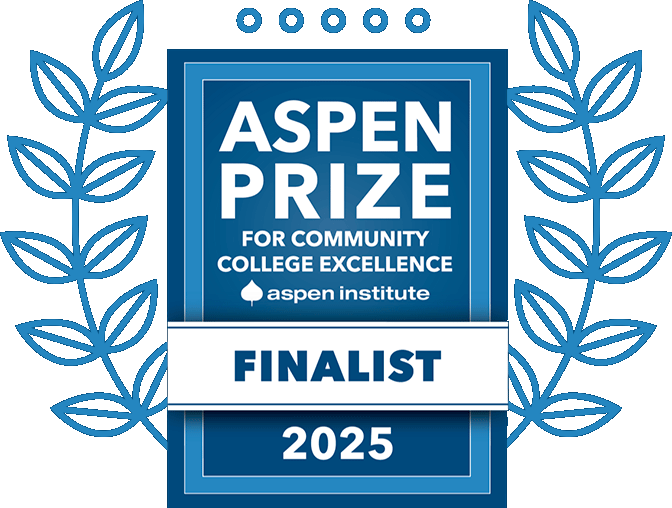Core Curriculum
The Core Curriculum at GHC — Changes as of Spring 2019
Areas A through E — Core Learning Goals and Required Courses
AREA A – ESSENTIAL SKILLS – 9 hours
Goal A1 (Communication)
- Students will express ideas logically and clearly in standard written English as appropriate for audience and purpose.
- Students will analyze and critically interpret the content, style, point-of-view, and perspectives of factual or creative works using suitable terminology.
- Required courses:
- ENGL 1101 English Composition I (3-0-3)
- ENGL 1102 English Composition II (3-0-3)
Goal A2 (Quantitative Reasoning)
- Students will interpret and apply mathematical information, concepts, and principles embedded in verbal, numerical, graphic, or symbolic representations.
- Choose one of the following courses:
- MATH 1001 Quantitative Skills and Reasoning (3-0-3)
- MATH 1111 College Algebra (3-0-3)
- MATH 1113 Pre-calculus (3-0-3)
- MATH 2040 Applied Calculus (3-0-3)
- MATH 2261 Calculus I (4-0-4)
AREA B – INSTITUTIONAL OPTIONS – 4-5 hours (*please see additional notes on Area B at the bottom of the page)
Goal B (Institutional Options)
- Through oral or written communication, students will demonstrate the ability to synthesize information and articulate knowledge on issues relating to culture, society, creative expression, or the human experience.
- Required course:
- COMM 1110 Public Speaking (1-2-2) or COMM 1100 Human Communications (3-0-3)
- Choose one of the following courses:
- FCCS 1100 Freshman College Computer Studies (2-0-2)
- GHHU 2901 Special Topics in the Humanities (variable 1-3)
- GHMA 2901 Special Topics in Mathematics (variable 1-3)
- GHSC 2901 Special Topics in the Sciences (variable 1-3)
- GHSS 2901 Special Topics in the Social Sciences (variable 1-3)
- IDIS 1100 Social & Cultural Issues (2-0-2)
- IDIS 1101 Social & Cultural Issues (3-0-3)
- NSCI 1100 Science in Today’s World (2-0-2)
AREA C – HUMANITIES/FINE ARTS – 6 hours
Goal C (Humanities/Fine Arts/Ethics)
- Students will articulate how various forms of thought and expression reflect individual, social, or cultural values and perspectives.
- Required – Choose one of the following courses:
- ENGL 2111 World Literature I (3-0-3)
- ENGL 2112 World Literature II (3-0-3)
- ENGL 2121 British Literature I (3-0-3)
- ENGL 2122 British Literature II (3-0-3)
- ENGL 2131 American Literature I (3-0-3)
- ENGL 2132 American Literature II (3-0-3)
- ENGL 2133 African-American Literature Survey (3-0-3)
- Choose one three-hour course from these options:
- ARTS 1111 Art History to the Renaissance (3-0-3)
- ARTS 1112 Art History, Renaissance to the Present (3-0-3)
- ARTS 1113 Art Appreciation (3-0-3)
- ENGL 2010 Humanities in Drama (3-0-3)
- ENGL 2111 World Literature I (3-0-3)
- ENGL 2112 World Literature II (3-0-3)
- ENGL 2121 British Literature I (3-0-3)
- ENGL 2122 British Literature II (3-0-3)
- ENGL 2131 American Literature I (3-0-3)
- ENGL 2132 American Literature II (3-0-3)
- ENGL 2133 African-American Literature Survey (3-0-3)
- FREN 1002 Elementary French II (3-0-3)
- FREN 2001 Intermediate French I (3-0-3)
- FREN 2002 Intermediate French II (3-0-3)
- HUMS 2011 Studies in Humanities (3-0-3)
- MUSC 1100 Music Appreciation (3-0-3)
- PHIL 2010 Introduction to Philosophy (3-0-3)
- RELI 1116 Introduction to Religion (3-0-3)
- SPAN 1002 Elementary Spanish II (3-0-3)
- SPAN 2001 Intermediate Spanish I (3-0-3)
- SPAN 2002 Intermediate Spanish II (3-0-3)
- THEA 1100 Theatre Appreciation (3-0-3)
AREA D – SCIENCE, MATHEMATICS, AND TECHNOLOGY – 10-11 hours
Goal D (Natural Sciences)
- Students will demonstrate knowledge of college-level scientific concepts, along with the application of those concepts through experimentation and observation.
- Students will use appropriate models and quantitative methods to analyze data, explore relationships among variables, and find missing information.
- Required – Choose one of the following science sequences:
- ASTR 1010K Astronomy of the Solar System (3-3-4) and ASTR 1020K Stellar & Galactic Astronomy (3-3-4)/lab OR
- BIOL 1010K Introductory Biology (3-3-4) and one of the following to complete the sequence:
- BIOL 2151K Invertebrate Zoology (3-3-4) or
- BIOL 2152K Introduction to Field Studies (3-3-4) or
- BIOL 2153K Botany (3-3-4) or
- BIOL 2154K General Zoology (3-3-4) or
- BIOL 2190 Principles of Nutrition (3-0-3) OR
- CHEM 1151K (3-3-4) and CHEM 1152K (3-3-4) Survey of Chemistry I and II OR
- GEOL 1121K Physical Geology (3-3-4) and GEOL 1122K Historical Geology (3-3-4) OR
- PHSC 1011K I (3-3-4) AND PHSC 1012K (3-3-4) Physical Science I and II
- Choose one of the following courses:
- MATH 1113 Precalculus (3-0-3)
- MATH 1401 Elementary Statistics (3-0-3)
- MATH 2040 Applied Calculus (3-0-3)
- MATH 2261 Calculus 1 (4-0-4)
AREA E – SOCIAL SCIENCES – 12 hours
Goal E (Social Sciences)
- Students will analyze, from multiple perspectives, the ways that historical, economic, political, social, or cultural relationships develop.
-
- Required course:
- POLS 1101 American Government (3-0-3)
- Choose one required World/Western Civilization course:
- HIST 1111 World Civilization to 1500 (3-0-3)
- HIST 1112 World Civilization since 1500 (3-0-3)
- HIST 1121 Western Civilization I (3-0-3)
- HIST 1122 Western Civilization II (3-0-3)
- Choose one required course in American History:
- HIST 2111 American History I (3-0-3)
- HIST 2112 American History II (3-0-3)
- Choose one course from those listed below:
- GEOG 1101 Introduction to Human Geography (3-0-3)
- ECON 2105 Principles of Macroeconomics (3-0-3)
- HIST 1111 World Civilization to 1500 (3-0-3)
- HIST 1112 World Civilization since 1500 (3-0-3)
- HIST 1121 Western Civilization I (3-0-3)
- HIST 1122 Western Civilization II (3-0-3)
- HIST 2111 American History I (3-0-3)
- HIST 2112 American History II (3-0-3)
- HIST 2154 Minorities in United States History (3-0-3)
- POLS 2401 Global Issues (3-0-3)
- POLS 2501 Domestic Issues (3-0-3)
- PSYC 1101 Introduction to General Psychology (3-0-3)
- RELI 1116 Introduction to Religion (3-0-3)
- SOCI 1101 Introduction to Sociology (3-0-3)
- SOCI 1160 Introduction to Social Problems (3-0-3)
- Required course:
Core Overlay Requirements – Learning Goals and Courses Fulfilling the Requirements
As a part of the core curriculum, all students must take a course that will fulfill each of the following three overlay goal requirements:
Goal I (US Perspectives)
- Students will demonstrate an understanding of U.S. society, culture, government, economics, or institutions through contemporary and historical perspectives.
- Courses fulfilling the US Perspectives Overlay:
- HIST 2111
- HIST 2112
- POLS 1101
- ENGL 2131
- ENGL 2132
- ENGL 2133
Goal II (Global Perspectives)
- Students will demonstrate understanding of political, social, cultural, economic, or institutional aspects of nations outside the U.S.
- Courses fulfilling the Global Perspectives Overlay:
- HIST 1111
- HIST 1112
- HIST 1121
- HIST 1122
- ENGL 2111
- ENGL 2112
Goal III (Critical Thinking)
- Students will identify, analyze, evaluate, and synthesize information to support ideas or arguments or solve problems.
- Courses fulfilling the Critical Thinking Overlay:
- COMM 1100
- ENGL 1101
- ENGL 1102
- ENGL 2111
- ENGL 2112
- ENGL 2121
- ENGL 2122
- ENGL 2131
- ENGL 2132
- ENGL 2133
- MATH 1401
- PHIL 2010
New Area B Courses — Overall Learning Goal for Area B, Student Learning Outcomes for Area B, and New Courses
- Through oral or written communication, students will demonstrate the ability to synthesize information and articulate knowledge on issues relating to culture, society, creative expression, or the human experience.
Area B Student Learning Outomes:
- Students will demonstrate effective communication skills.
- Students will be able to, individually or as a member of a group, use information effectively to accomplish a specific purpose.
- Students will demonstrate the ability to effectively synthesize information from multiple sources.
- Students will be able to articulate the relevance of the topic under consideration to society, culture, creative expression, or the human experience.
New Area B Courses:
- GHHU 2901 – (Georgia Highlands Humanities) Variable Credit (1-3 semester hours credit). Prerequisite: Approval of Academic Dean. Exploration of a particular humanities focus with an examination of its relevance to society, culture, creative expression, or the human experience. Requires use of oral or written communication skills in synthesizing information and articulating knowledge.
- GHSS 2901 – (Georgia Highlands Social Sciences) Variable Credit (1-3 semester hours credit). Prerequisite: Approval of Academic Dean. Exploration of a particular social sciences focus with an examination of its relevance to society, culture, creative expression, or the human experience. Requires use of oral or written communication skills in synthesizing information and articulating knowledge.
- GHMA 2901 – (Georgia Highlands Mathematics) Variable Credit (1-3 semester hours credit). Prerequisite: Approval of Academic Dean. Exploration of a particular mathematics focus with an examination of its relevance to society, culture, creative expression, or the human experience. Requires use of oral or written communication skills in synthesizing information and articulating knowledge.
- GHSC 2901 – (Georgia Highlands Science) Variable Credit (1-3 semester hours credit). Prerequisite: Approval of Academic Dean. Exploration of a particular natural sciences focus with an examination of its relevance to society, culture, creative expression, or the human experience. Requires use of oral or written communication skills in synthesizing information and articulating knowledge.


